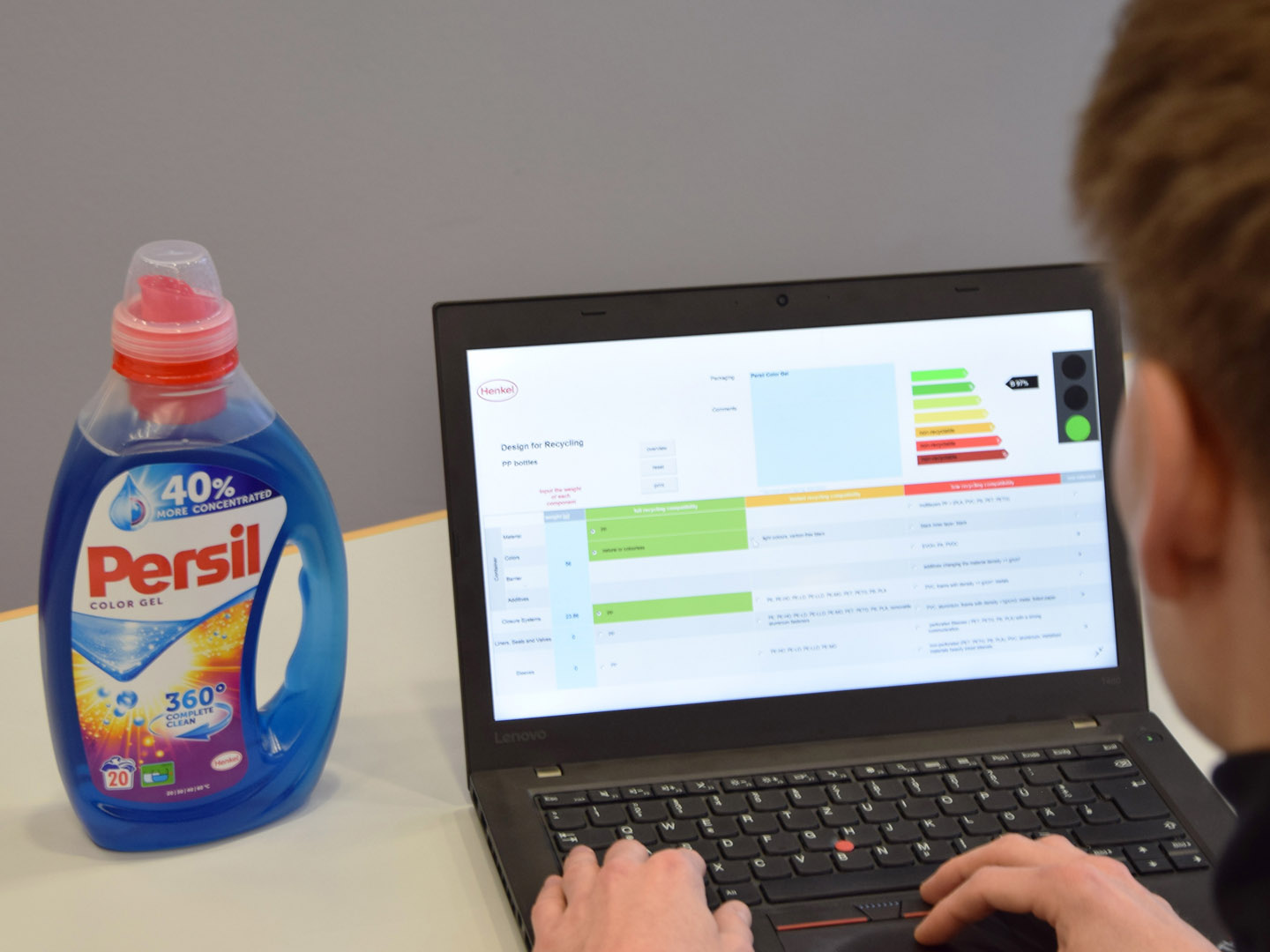Sustainability
Henkel's assessment tool for recyclable packaging tested by Fraunhofer UMSICHT
Plastic is an important material in the packaging industry. The material offers many advantages – but also faces criticism due to the great challenge to create a closed loop for plastic in the sense of a circular economy. However, the prerequisite for this is packaging which is recyclable. But how can recyclability be determined in the most efficient and reliable way possible? Fraunhofer UMSICHT tested a software tool developed by Henkel.
Henkel’s evaluation tool
The company Henkel AG & Co. KGaA has long been committed to sustainable packaging and promoting a circular economy for plastics – and has set itself ambitious goals: By 2025, 100 percent of Henkel’s packaging will be recyclable, reusable or compostable. Within the same timeframe, Henkel aims to use 35 percent recycled plastic in the packaging for its consumer goods products in Europe.
In order to ensure that the recyclability of packaging can be checked quickly and reliably early in the product development phase, Henkel has developed an easy-to-use software tool based on public and recognized criteria catalogues such as those from Plastics Recyclers Europe.
Handling of the tool
The software evaluates the recyclability of packaging based on its composition and the individual weight proportions of the respective components: basic materials, closures, labels, colors, etc. For all materials in question, the tool stores information on the suitability for identification during sorting, and for processing during recycling (e.g. good separability through float-sink separation). On this basis, the packaging designer gets clear results displayed on a clear traffic light evaluation system. The results of the tool show the recyclability of each design as a percentage and the material combinations which can be optimized for recycling.
Testing by Fraunhofer UMSICHT
The Fraunhofer Institute for Environmental, Safety and Energy Technology UMSICHT tested the tool independently and critically for usability, appropriateness and logic. The scientists at Fraunhofer UMSICHT analyzed the evaluation software and its results and compared it to national and international standards – including the recently published orientation for assessing the recyclability from the German organization »Zentrale Stelle Verpackungsregister« and the definitions of the »New Plastics Economy« initiative*. »We contributed to the final development and can confirm that the tool very well serves its purpose to evaluate the recyclability of product packaging. We are pleased that companies like Henkel are fulfilling their responsibility and working directly towards recyclable packaging during development«, says Dr.-Ing. Markus Hiebel, Head of Sustainability and Resource Management at Fraunhofer UMSICHT.
Application and outlook
In the future, the tool will be used by Henkel worldwide and will enable fast and comprehensive evaluation for the most important types of plastic packaging. Dr. Thorsten Leopold, Head of International Packaging Development Home Care explains: »We are delighted that our tool passed the critical examination of the Fraunhofer scientists. It will help us to make further progress in the recyclability of our packaging portfolio and thus achieve our ambitious targets for 2025«. Henkel is motivated to make this tool available to others as well, following the idea that a circular economy can only be successfully established if all involved parties across industries work together. »Upon request, we will be happy to share the application so that it can be used more widely and offer added value to a wider circle«, says Dr. Thorsten Leopold.
* The New Plastics Economy– an initiative of the Ellen MacArthur Foundation – aims to reduce packaging and ensure the reuse, recyclability or compostability of packaging. Henkel supports this vision and signed the Global Commitment of the New Plastics Economy in October 2018.
Last modified:
 Fraunhofer Institute for Environmental, Safety and Energy Technology UMSICHT
Fraunhofer Institute for Environmental, Safety and Energy Technology UMSICHT